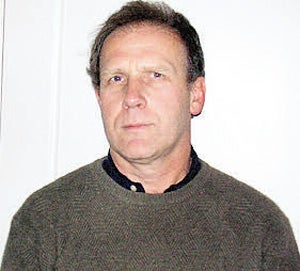Analysis: Many small businesses will emerge from the downturn stronger than before

The coming months look certain to bring more turmoil. Even if events do not turn out to be quite as cataclysmic as those of recent weeks, it is still highly likely that we will – in the words of the Chinese proverb – live in interesting times.
Undoubtedly, the ending of what has been an essentially benign environment for business will create more than a few casualties. And smaller businesses – since they tend to be lower down the food chain with fewer reserves to call on in an hour of need – are likely to bear the brunt of the damage. Moreover, they may be more vulnerable to banks tightening their lending criteria. Equally, though, smaller businesses can be more fleet-footed and responsive than their larger counterparts and so may be able to side-step their way out of trouble. More so than ever, generalisations are impossible to make.
However, there are plenty of reasons to believe that many entrepreneurs and smaller businesses may emerge from the coming downturn in just as good, if not better, shape than they went in. After all, many of today's most successful companies began in tough times and many others have come through previous downturns, not exactly unscathed, but with experience that could stand them in good stead now. As is always the case, one person's misfortune is another's opportunity and those who have hoarded cash while the going was good are going to have plenty of chances to put that money to their advantage in the coming months. While companies supplying products and services that could be said to fall into the discretionary spending category might well suffer, a recession is also an excellent time to start a business. People, raw materials and office space are cheaper than in boom times, while suppliers are likely to turn up on time and offer reasonable rates. Further, with interest rates expected to fall markedly, money – when it finally becomes available – should be relatively cheap to borrow.
No less an authority than Sir Ronald Cohen, one of the founding fathers of the European venture capital industry, believes times such as these are just right for the bold entrepreneur. Curiously perhaps for a man who has become closely associated with Gordon Brown, who is currently being ridiculed over his earlier claims to have ended Britain's boom-bust cycle, Sir Ronald is a great believer in the importance of trends and cycles.
In his book The Second Bounce of the Ball, he devotes much space to the idea that successful entrepreneurs see the difference between trends and cycles and understand their relation to them. "Market trends and cycles are what entrepreneurial timing is primarily about," he writes. If you really understand your market you will be able to predict where the ball will bounce and be able to take advantage of the situation, he says.
Sir Ronald cites Computacenter, the computer supplier, as a good example of a company in which Apax invested that anticipated the second bounce of the ball. The company's initial insight was that businesses were not going to buy large numbers of computers in a shop. They would want a sophisticated supplier. And since hardware supplying was closely bound up with selling software, the company that offered such a service would have to provide a more problem-solving service, too. As such, it became a key supplier to companies making the move from mainframes to personal computers. Then, it anticipated the bounce again and realised that computers were becoming too complex for businesses to operate on their own. It offered to take back the computers it had sold clients and run them on their behalf. In so doing, Computacenter helped create the fully integrated communications technology packages that are commonplace today.
The bursting in 2000 of the "technology bubble" was seen by many as the end of technology. But Sir Ronald and his team saw it as a stage in the cycle, caused by the over-valuation of high-tech companies. They predicted that technology would continue to drive growth and acted accordingly.
Sir Ronald is now largely retired from the venture capital business and is concentrating on his social projects. So it is left to those following him as both entrepreneurs and investors in them to take up the challenge of picking winning ideas and the right time to start out.
But in doing so they would perhaps be wise to heed his warnings about the scant attention that entrepreneurs tend to pay to such "crucial factors" as the strength of the economy, the level of consumer spending and the amount of saving being done. "When you draft your business plan, you have to ensure that it is not totally dependent on a single economic outcome," he writes, before adding that timing, trends and cycles "have as big an influence on entrepreneurial success as good ideas, financial acumen and great team building".
Subscribe to Independent Premium to bookmark this article
Want to bookmark your favourite articles and stories to read or reference later? Start your Independent Premium subscription today.

Join our commenting forum
Join thought-provoking conversations, follow other Independent readers and see their replies